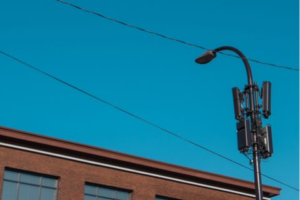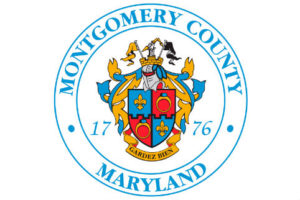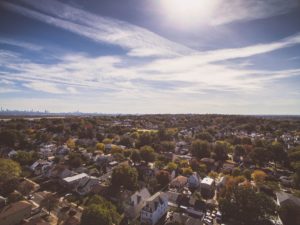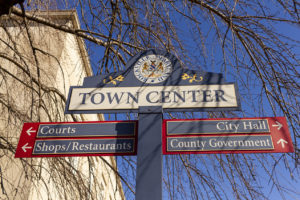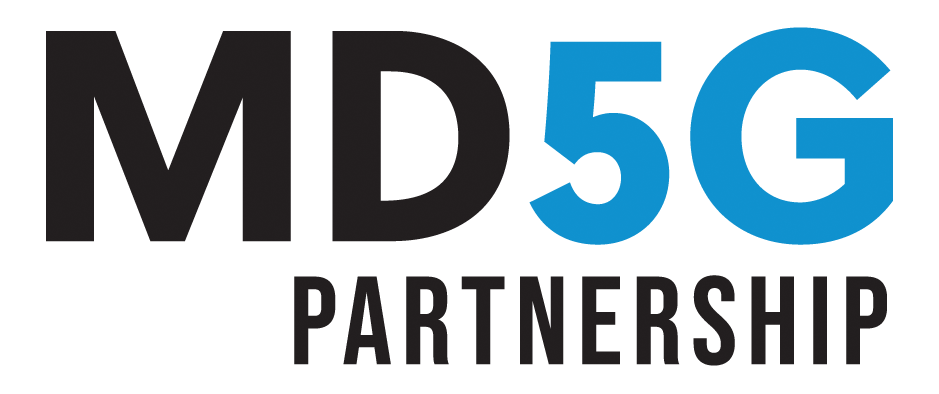
MD5G Partnership Launches in Support of 5G Deployment throughout Maryland
Today, a group of Maryland’s technology, civic and business leadership announced the formation of the MD5G Partnership—a coalition to create more connected communities through communications infrastructure and 5G—the next-generation of connectivity. Current members of the MD5G Partnership include: Maryland Tech Council, Greater Baltimore Committee, Northeast Maryland Tech Council, Greater Washington Board of Trade, Verizon, Ports America Chesapeake, Ports America, Crown Castle, Junior Achievement of Central Maryland, T-Mobile, The Children’s Guild Alliance, TranZed Academy for Working Students, KCI Technologies, Education Networks of America, BaltiVirtual, Maryland Chamber of Commerce and Hispanic Chamber of Commerce Montgomery County.
“Now, more than ever there is an enormous need to build connected communities that are prepared for innovative technologies and the jobs of tomorrow,” said Laura Toraldo, executive director and spokesperson for MD5G. “MD5G aims to promote the benefits of 5G for digital learning, public safety, public health and economic growth with policy makers and community stakeholders through education, advocacy and community engagement.”
With more mobile devices in the state than ever before, traffic on cellular networks as well as the demand for mobile data continues to grow exponentially. The revolution to 5G throughout Maryland will deliver data at rates 20 times faster than the infrastructure in place today, enabling new technologies and innovations in education, public safety, healthcare, technology, public transportation and other industries to thrive.
According to a report by the Pew Research Center, 37% of Americans now go online mostly using a smartphone. With many depending on their mobile devices for access to the internet, 5G will expand critical connectivity for communities, particularly underserved populations that disproportionately rely on their wireless data to apply for jobs, find information about health conditions, do homework and access government services.
5G would create an estimated 9,700 jobs, $850 million in network investment and $1.5 billion in estimated GDP growth for Maryland, according to CTIA’s economic impact study. While neighboring states like Virginia, West Virginia, Delaware and 25 others have passed small cell legislation, Maryland tabled discussions on statewide legislation during the 2019 Maryland General Assembly session.
“Consumers and businesses are already driving the demand for 5G,” said Donald Fry, president and CEO of the Greater Baltimore Committee and MD5G partner. “5G will be a boost for our local economy across sectors. Through the formation of MD5G, partner organizations are sending a message that Maryland is prepared to embrace the next generation of wireless technology.”
“As America’s first and only nationwide 5G network, T-Mobile is proud to partner with MD5G for a better-connected Maryland. With education and planning, we can ensure everyone in the community benefits from the innovations and opportunities that 5G will bring,” said Brendan Bellotte, senior manager of engineering development at T-Mobile.
“5G is an exciting opportunity for Montgomery County and for Maryland. We must get the right infrastructure in place to pave the way for innovative technologies,” said Montgomery County Councilman Hans Riemer. “We are all relying on our networks more than ever and we need to open the door for private sector investment to build and expand those networks. Stronger networks, for example, will improve access to distance learning and virtual healthcare, let alone make it easier for all of us to conduct business in an increasingly distanced or telecommuting environment.”
About the MD5G Partnership
MD5G is a statewide partnership of individuals, businesses, community leaders, and non-profits that support creating more connected communities through communications infrastructure and 5G—the next-generation of connectivity. We are committed to growing wireless connectivity in Maryland to prepare for future innovative technologies through education, advocacy, and community engagement.
